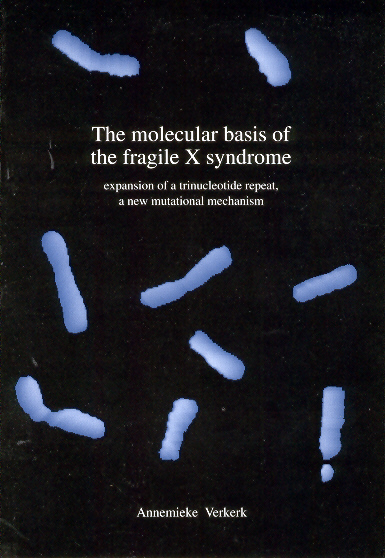About J.M.H. (Annemieke) Verkerk, PhD
Introduction
Education and career
The main working focus of Annemieke Verkerk has been in achieving progress towards and identification of gene mutations causing genetic diseases in families.
As a master student she worked on developing a physical genetic map of the Duchenne Muscular Dystrophy gene region (LUMC, Leiden). Cell 1986.
During her time as a PhD student at the ErasumsMC, she identified the gene mutation causing the Fragile X syndrome, one of the most occurring intellectual disabillity syndromes in males.

After her PhD she worked on:
- exploring genes involved in the development of germ cell tumors (Daniel den Hoed Clinic, Rotterdam)
- understanding the molecular basis of Wolf Hirschhorn syndrome (LUMC, Leiden)
- search for genes involved in the Gilles de la Tourette syndrome (EMC, Rotterdam)
- search for genes involved in hereditary brain malformations (EMC, Rotterdam)
She currently works on searching for gene mutations in hereditary diseases involving skeleton and bone (and some others) including using exome sequencing data (EMC Rotterdam).
Novel genes identified:
FMR1: trinucelotide repeat expansions cause Fragile X syndrome. Cell, 1991.
AP4M1: mutations cause cerebral palsy. AJHG, 2009.
CXorf56; a new gene causing X-linked intellectual disability. EJHG, 2018.
Publications
Scholarships, grants, and awards
Investigators Award Dutch Society of Human Genetics (NVHG), 1991
Honorary member, Dutch Society of Human Genetics (NVHG), 2021
